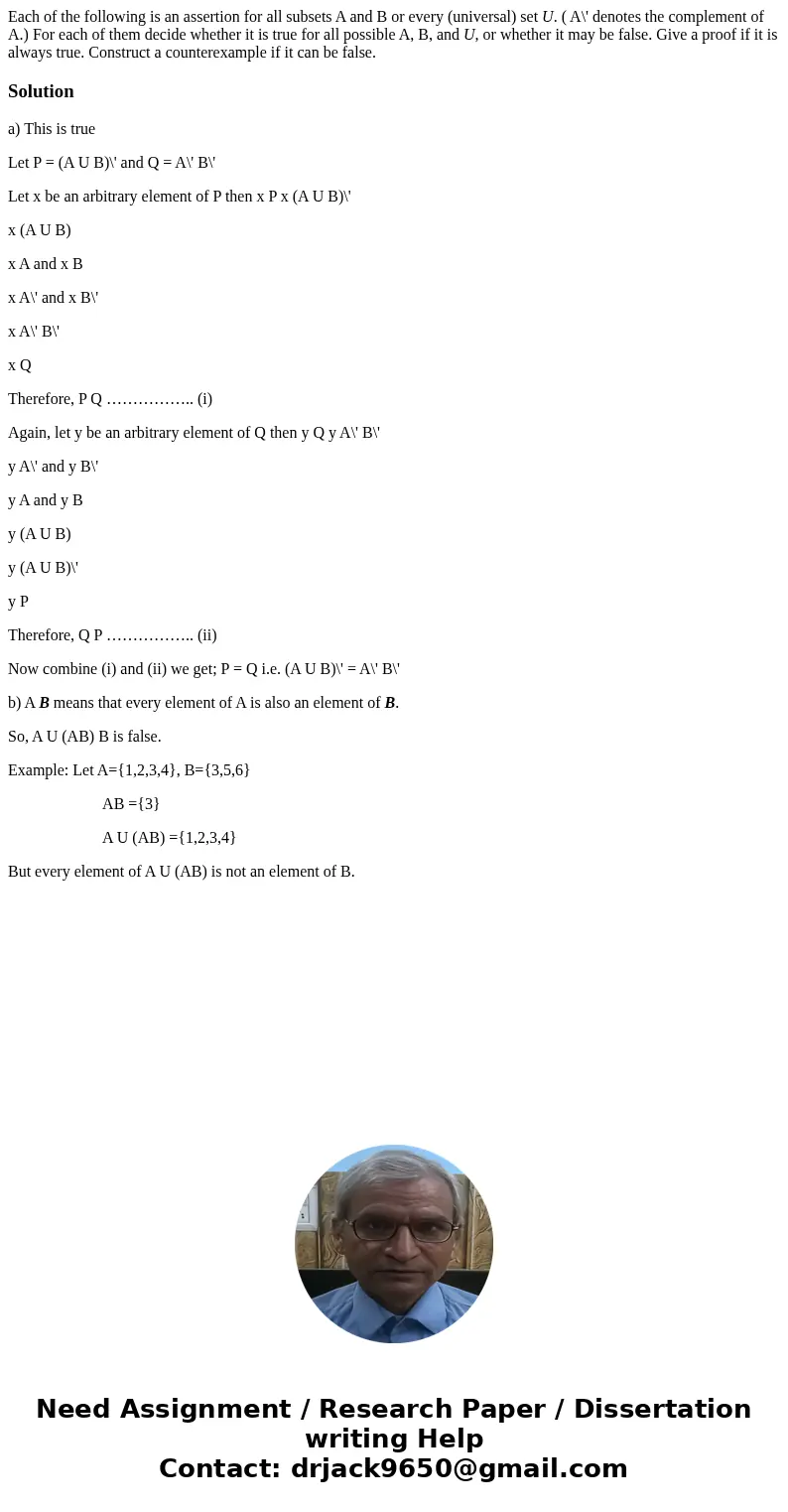Each of the following is an assertion for all subsets A and
Each of the following is an assertion for all subsets A and B or every (universal) set U. ( A\' denotes the complement of A.) For each of them decide whether it is true for all possible A, B, and U, or whether it may be false. Give a proof if it is always true. Construct a counterexample if it can be false.
Solution
a) This is true
Let P = (A U B)\' and Q = A\' B\'
Let x be an arbitrary element of P then x P x (A U B)\'
x (A U B)
x A and x B
x A\' and x B\'
x A\' B\'
x Q
Therefore, P Q …………….. (i)
Again, let y be an arbitrary element of Q then y Q y A\' B\'
y A\' and y B\'
y A and y B
y (A U B)
y (A U B)\'
y P
Therefore, Q P …………….. (ii)
Now combine (i) and (ii) we get; P = Q i.e. (A U B)\' = A\' B\'
b) A B means that every element of A is also an element of B.
So, A U (AB) B is false.
Example: Let A={1,2,3,4}, B={3,5,6}
AB ={3}
A U (AB) ={1,2,3,4}
But every element of A U (AB) is not an element of B.

 Homework Sourse
Homework Sourse